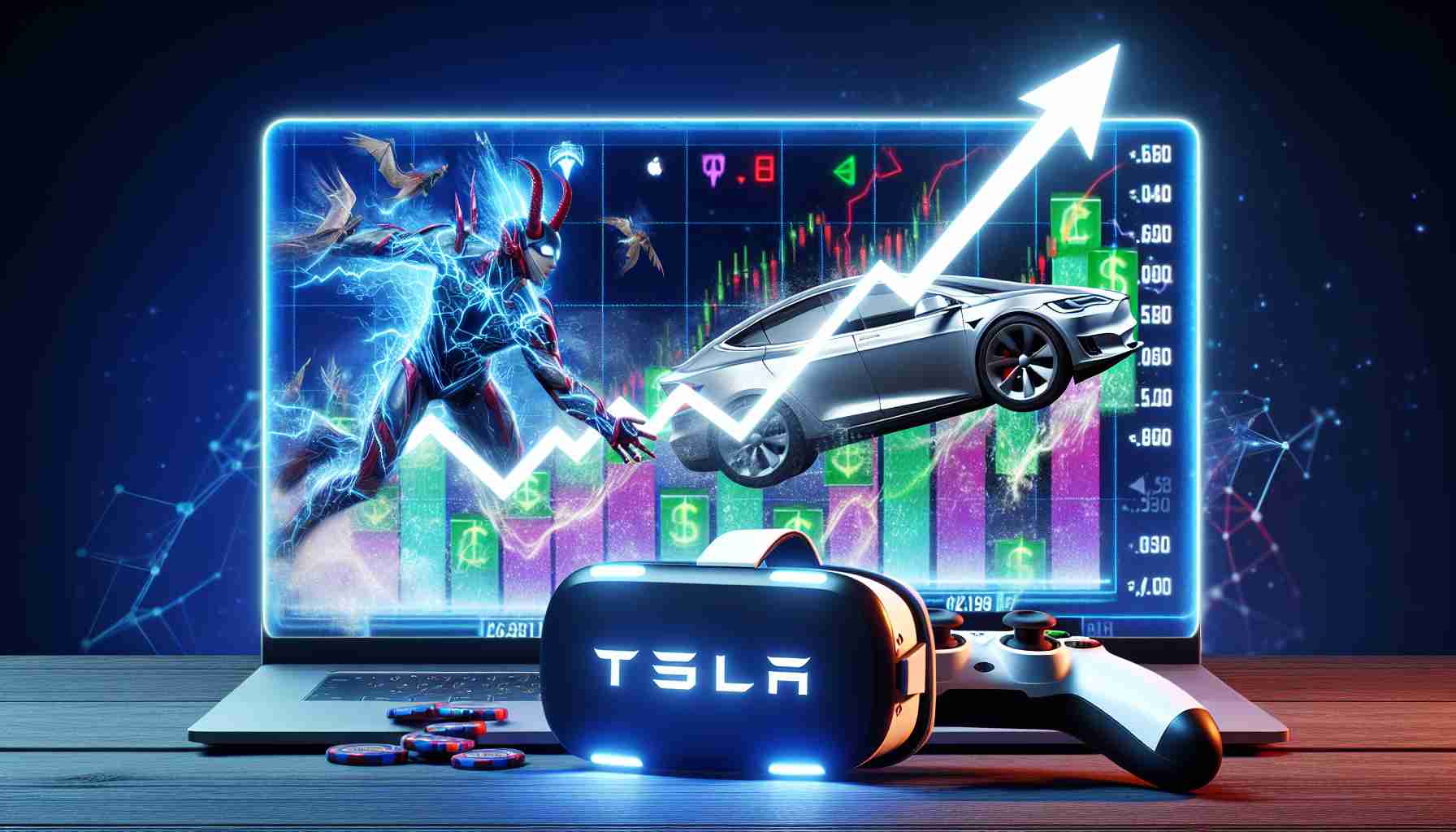Tesla shares are not just for Wall Street anymore. In a groundbreaking move, these shares could soon become a novel in-game currency, revolutionizing the gaming world.
With the line between virtual and real economies increasingly blurred, gaming companies are exploring new ways to integrate trading and investment opportunities within their platforms. Tesla, known for pushing technological boundaries, finds itself at the forefront of this innovative trend. The proposition? Allowing players to use Tesla shares as currency in digital marketplaces.
Imagine a scenario where players could invest in Tesla shares, earn dividends, or trade them for rare in-game items. This concept leverages the growing interest in stock market simulation games and the burgeoning potential of blockchain technology to facilitate transparent, secure digital transactions. It introduces a real-world financial element to gaming, providing a deeper, more engaging experience.
Experts suggest that this integration could financially benefit both gaming companies and players. For gaming companies, it’s an innovative revenue stream, attracting financially savvy audiences eager for realistic simulation experiences. For players, it offers a fun, educational tool to learn about stock markets, all while earning potential digital rewards.
Concerns about volatility and market regulations exist, but proponents argue that regulated environments and virtual economies can mitigate risks. This bold direction might seem speculative now, but as technology advances, it hints at a future where gaming and real-world finance intersect.
Is this the next step in gaming evolution? Only time will tell, but the merge of Tesla shares and digital worlds is certainly one to watch.
Game-Changing or Risky? The Impact of Turning Tesla Shares into In-Game Currency
In a daring intersection of finance and virtual reality, gaming platforms are pondering the inclusion of Tesla shares as in-game currency, catalyzing debates about the future of gaming and investment. As the virtual economy intertwines with reality, one question emerges: How might this affect individuals and broader communities?
What Are the Implications for Players?
Transforming Tesla shares into gaming currency could create a new breed of financially literate gamers. Players might gain a unique opportunity to understand stock market dynamics intimately, leading to more informed financial decisions. However, the potential downside is significant; players may face financial losses if they’re not prepared to navigate volatile markets.
Community and Societal Concerns
Communities that embrace this fusion may witness shifts in gaming culture, aligning it closer to financial literacy education. This change could foster a sense of empowerment, especially in younger audiences who traditionally engage more with digital platforms than stock exchanges. The downside? It could exacerbate socio-economic divides, giving an edge to those already familiar with financial systems.
Global Perspectives and Regulations
Countries with stringent financial regulations might resist integrating real-world financial elements into gaming. Conversely, nations with supportive blockchain frameworks could spearhead this evolution. Regulatory concerns will undoubtedly play a crucial role in shaping the feasibility and implementation of such projects.
Pros and Cons
The advantages include augmented learning experiences, potential digital earnings, and a broadening of gaming audiences. Disadvantages involve market risk exposure, necessary regulatory oversight, and ethical concerns regarding gambling for minors.
Ultimately, the convergence of finance and gaming could redefine entertainment and education. As industry watchers, our curiosity lies in navigating this uncharted territory with cautious optimism. For more on technological innovations, visit Tesla or delve into the latest in gaming at IBM.



















